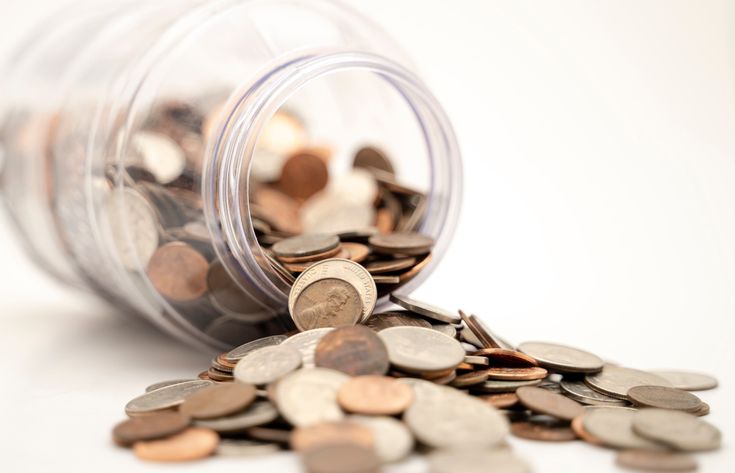How To Start Saving Money In 2020

Image by: Michael Longmire
Want to start saving money but not sure where to start? Here are the best money saving tips, budgeting advice and finance tricks to keep you on track with your financial 2020 resolutions.
Post-Christmas colds and back-to-work blues aside, the new year can be an exciting time, especially when it concerns our resolutions. Like all new toys, they’re still bright and shiny; wholly attainable and promising a better, healthier lifestyle. Come February though and it’s a different story. Our promises to ‘quit drinking’ and ‘go to the gym’ soon tarnished, discarded and forgotten about under our beds like all the other new toys before them.
More often than not, failed New Year’s resolutions can be chalked up to our own singular approach to goals - success and failure on very grand, black and white terms. Promising that ‘we will never touch another drop of wine unless it’s a special event’ or ‘we will go to the gym at 6am everyday’ is a system that sets us up to fail and, once we do, we are tempted to give up. In reality there is always another day to opt for a soft drink and the gym will still be there when your alarm goes off tomorrow.
Many of us - the author of this piece included - are tending to New Year’s resolutions related to money. Whether it be learning how to budget, saving for a house, car or big holiday, gunning for a higher paying job or starting a pension fund, there are endless numbers of ‘good financial habits’ to practice. Not only that, these habits are absolutely manageable, despite the curse of failed New Year’s resolutions. With realistic, manageable goals these habits can be sustained for the long run.
So, in the spirit of making small steps to see big changes, we at Octer have put together our guide on how to save money everyday in 2020 - start implementing these suggestions now and soon they’ll become second nature.

Image by: @easy_budget
Before you consider how much you can save and how to make those savings, debt should be your first thought, whether that be a mortgage, credit card or student loan. Always factor in any contractual payments you have on debts such as fixed monthly amounts - you don’t want to be bit hit with missed payment charges that could affect your credit score.
How many times have you thought that saving money is too difficult? Well, it’s not true, we all can save money - no matter how much or how little we earn, and no matter how tedious budgeting is. If you find it hard to set aside some money each month, there are two options: one low- and one high-tech. For technophobes, the best way to save is to simply set up a standing order each month that leaves your bank automatically and is deposited in a savings account. Organise this standing order to go out at the start of the month - just after payday - so you don’t even notice it’s loss when you check your bank account. This also stops you from shelling out your precious savings money on payday drinks and shopping splurges. Websites like moneysavingexpert.com and savingschampion.co.uk are great for working out which banks have the best interest ratings.
If you don’t fancy this method, there are several apps that help you to save like Cleo, Chip, Plum and Digit - they automatically connect to your bank, work out how much you can save and put it in a saving account for you. Budget-tracking debit cards like Monzo also enable you to round up your spending to the nearest pound, stashing away the pennies into a savings pot without you noticing the difference.

Image by: Plum app
It’s great deciding that from now on, you’re going to set aside £200 per month for savings. It’s even better putting this £200 in a calculator, times-ing it by 12 and seeing how much you would theoretically have by the end of a year. What’s not great is this number is not always realistic or manageable - it could end up eating into your precious budget for rent, bills and direct debits and push you into the dangerous depths of your overdraft.
In order to make saving a long term, sustainable habit, you need to work out how much you can really set aside each month. Many people do this the old fashioned way, taking their income after tax, taking away any necessary payments (rent, bills, a food budget, transport costs, direct debits, debt payments) and using the total left.
We also love the 50/30/20 rule for making budgeting simple. It involves organising your expenses into three main spending categories: your ‘needs’ (essentials like rent, bills, groceries and transportation), ‘wants’ (anything that falls outside of your immediate ‘needs’ such as holidays, subscriptions, takeaways, a new coat) and your ‘to save’. 50% of your post-tax income goes to your ‘needs’, 30% to your ‘wants’ and 20% is saved.
In the moment we tell ourselves that we need that new party dress; are desperate for an artisanal latte, can’t survive the week without a Friday night takeaway. Treating ourselves is ok - it’s human! - but spending out on things we don’t need, with abandon and without thought to the consequences can be dangerous. If you’re in this predicament then what you need is financial responsibility - to see what you’re currently spending and where. You can DIY your own tracker by keeping a notebook in your bag and noting down every purchase you make, or creating an excel spreadsheet to chart your spending.
If you would prefer an app to help you there are plenty, including Mint, Income OK and YNAB. Want to keep track as you go? Explore getting a Monzo or Revolut to get an up to date visual as you spend (plus you can round up your purchases and put the extra pennies in a savings pot for later!).

Image by: Oliur
If you’re unhappy with your bank and don’t think it’s helping you at all, don’t just complain, do something about it. Switching your bank can help transform your financial future. In September 2019, financial expert and founder of MoneySavingExpert.com, Martin Lewis advised that it is time to “switch and ditch” any low interest savings accounts: “My message is this: if you haven’t been given good service by your bank, go and give someone else a go,” he started.
“When you get bad service and bad information that means you lose out on money, don’t give them your custom and don’t let them keep your custom.”
For some, it’s the perks that banks offer that sway them - some banks offer upfront bonuses (HSBC offer the biggest at £175), some 0% overdrafts (Firstdirect, who also offer a free £100) - whilst others focus on offering the best savings interest. Make sure you do your research and really consider what is best for you and your own priorities before making any decisions.
For many Millennials, the thought of a credit card is a frightening one (what about credit card debt?), however we also know that they are important for building up our credit scores. Essentially, when you pay off a credit card bill you are proving that you are trustworthy. The more trustworthy you prove, the less of a risk you are and so you are rewarded with lower interest rates when you borrow for big purchases like a house or a car.
To choose the best credit card for you and your financial situation it's important to consider what you want from it. Do you want it for balance transfers, a card with 0% interest spending, a card to improve your credit score or a card that rewards your spending? Money Supermarket's questionnaire is a great way to determine this.

Image by: @americanexpressuk
Credit cards also often come with reward points - they are called reward or bonus credit cards. This is a secondary benefit to boosting your credit score, but they are also a great way to earn back just for doing your everyday spending. This is because credit card companies want your business so they offer incentives wherein you can make use credit ‘points’ for all kinds of things, from travel to cash-back. In this case you should be using your points regularly to make it worthwhile as many cards have a ‘use-it or lose-it’ policy.
It is important to note that there isn't really one 'best rewards credit card' as card providers make new offers all the time and different cards will suit people with different needs. We suggest you consider what reward you'll make the most of, whether that's an air miles or travel point card for frequent travellers, or a card with a shop you frequent often.
The best reward credit cards currently (as of writing this, in February 2020) are:
Currently, the best cashback credit card is American Express Platinum Everyday; it is the best fee-free card. The introductory rate is 5% for the first three months and your first £2000 of spending (max £100 cashback). After this, it's then 0.5% cashback on up to £5,000 a year and 1% above this. You need to spend at least £3,000 a year to earn any cashback so is best for big purchases.
Best For Points Building
American Express Nectar Card
The best credit card that rewards your spending with points is the Amex Nectar card. Spend £2000 on the card within the first three months and you'll be rewarded with 20,000 Nectar points, the equivalent of £100, that can be spent at Nectar retailers such as Sainsbury's.
For frequent flyers, the top airline credit card currently is British Airways Amex. It has no annual fee, gives 5,000 bonus Avios points when you spend £1,000 in the first three months, plus the usual one point per £1 spent. If you spend £20,000 in a year you'll also earn a companion ticket for someone else so they can travel with you without using up points.
The best supermarket loyalty card at the moment is the Sainsbury's Nectar card. You'll not only earn Nectar points on your spending, plus bonuses within the first three months of signing up (750 bonus Nectar points worth £3.75 each time you spend £35 or more in store or online) and potentially up to 22 months 0% on spending - this should only be an option if you can fully repay by the end of the 0% period.
January 10 2020 by Esther Newman








